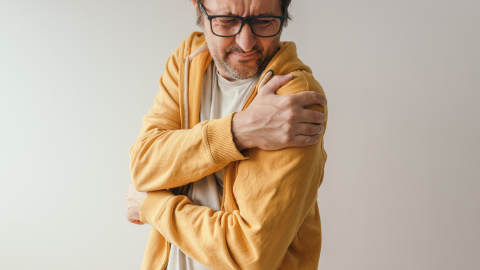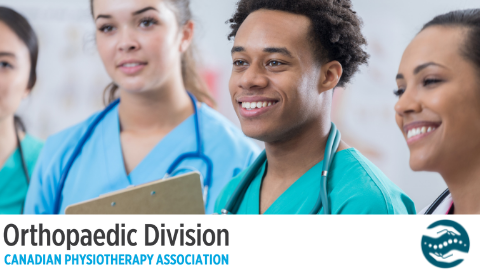Embodia Academy
The course you are trying to fetch does not exist
Featured courses

An Introduction to the Mental Health Physical Therapist Certification Program
Joe Tatta, Jeremy Fletcher
Free

Practical Pediatric Physiotherapy 0-6 Months
Jo-Anne Weltman
CA$249.00

Understanding Dizziness 101
Kregg Ochitwa
CA$299.00

Reframe Pelvic Girdle Pain: A 21st Century Approach
Dr. Sinéad Dufour, Reframe Rehab
CA$255.00
‹ Scroll for more ›
Special for Embodia Members View all
Get for CA$30.00

What Every Physiotherapist Needs To Know About Opioids
Pain Science Division
CA$50.00
Get for Free
Has free content

How to Develop Communication, Empathy, & Power Skills to Optimize Patient Outcomes
Dave Walton, Jim Millard, Jasdeep Dhir
CA$25.00
Get for Free

Anti-Racism & Allyship for Rehab and Movement Professionals
Dr. Jennifer Hutton
CA$59.99
Get for Free

An Innovative Senior Dog Program
Canadian Physiotherapy Association, Carrie Smith, Animal Rehabilitation Division
CA$20.00
Get for Free

Resource Package - Female and Male Urinary Incontinence
Nelly Faghani, Pelvic Health Solutions
CA$129.99
‹ Scroll for more ›
Coming Soon

Osteopathic Manual Therapy for the Body (LAS Technique)
Sarwat Abulmagd
CA$599.00
Coming Soon

Digital Health and Innovations in Physical Therapy - Implementing Your Innovative Physical Therapy Solution
Nirtal Shah
CA$499.00
Coming Soon

Don’t Sweat it! Tips for Better Hearing Success with Your Client!
Canadian Physiotherapy Association, Seniors' Health Division
CA$25.00
Coming Soon

Dry Needling in Physiotherapy - Are we Evidence-Based or Evidence-Informed when Treating Pain?
Canadian Physiotherapy Association, Acupuncture and Dry Needling Division
CA$10.00
Coming Soon

Rotator Cuff Tendinopathy Diagnosis, Nonsurgical Medical Care and Rehabilitation: Overview of a 2025 JOSPT Clinical Practice Guideline
Orthopaedic Division, Canadian Physiotherapy Association
CA$20.00
Coming Soon

Myofascial Release Expert
Sarwat Abulmagd
CA$599.00
Coming Soon
‹ Scroll for more ›

Sensory-Motor Dysregulation - An Effective Target for Persistent Pain
Carolyn Vandyken, Reframe Rehab
CA$199.00

Evidence-Informed Practices for Individualized Prescription of Ankle-Foot Orthoses
Dr. Kyra Kane (she/her)
CA$75.00

Resource Package - PhysioYoga and the Pelvic Floor
Shelly Prosko
CA$199.99

Motivational Interviewing, CBT, and ACT for Treating Pain
Pelvic Health Solutions, Alison Sim
CA$199.99

Bridging the Gap Between Pelvic Health & Sports Medicine in Hip Arthroscopy Rehabilitation
Dr. Ginger Garner
CA$605.00

Biopsychosocial Reframed - A Model for Treating Pain
Carolyn Vandyken, Reframe Rehab
Part of a bundle

Pudendal Neuralgia and Other Intrapelvic Causes of Neuropathic Pain
Pelvic Health Solutions, Dr. Nucelio Lemos
CA$30.00

External Approaches to Pelvic Health: Education, Exercise, Empowerment
Jenny Telfer-Crum, Ashley Burr
CA$600.00

APTEI: Shoulder Sensitivity & Contracture Capsulitis
Bahram Jam (he/him)
CA$199.00

PhysioYoga and the Pelvic Floor
Shelly Prosko
CA$599.00

Let’s Talk About Sex - Addressing Sexual Function With Your Patients
Pelvic Health Solutions, Karen Brandon
CA$399.99

Kundalini Yoga for the Brain, Memory and During Pregnancy
Helene Couvrette, Ellyn Stanek Hutton, Montreal International Symposium on Therapeutic Yoga (MISTY)
CA$79.00

Introductory Pelvic Health Care for Trans and Gender Diverse People
Pelvic Health Solutions, Céleste Corkery
CA$179.00

The Performer’s Pelvis: Managing Pelvic Floor Dysfunction in Dancers and Artistic Athletes
Pivot Dancer, Brooke R. Winder
CA$899.00

The Eclectic Approach to Temporomandibular Management
Dr. Erson Religioso III
CA$349.00

Managing Mechanical LBP and PGP - Telerehabilitation Friendly
Carolyn Vandyken
CA$249.00
Get for CA$149.00

Resource Package - Yin Yoga for the Hips, Pelvis and Low Back
Carolyn Vandyken, Amber Morphy
CA$199.00

Assessing & Treating Dancers and Artistic Athletes
Geneviève Renaud, Dinah Hampson, Pivot Dancer
CA$599.00

Resource Package - Qi Gong for Global Remapping
Carolyn Vandyken
CA$99.00

Resource Package - Novel Exercises for a Sensitive Nervous System
Carolyn Vandyken
CA$199.00

Reframe Pelvic Girdle Pain: A 21st Century Approach
Reframe Rehab, Dr. Sinéad Dufour
CA$255.00

Trauma-Sensitive Practice
Canadian Physiotherapy Association
CA$25.00

DIASTASIS - Current Concepts for Effective Assessment and Management
Antony Lo (he/his)
CA$45.00

Navigating the Pelvic Pain Client in a Telerehab World
Dr. Juan Michelle Martin
CA$29.99

Persistent Genital Arousal Disorder
Pelvic Health Solutions
CA$30.00

Trousse de Ressources - Qi Gong
Carolyn Vandyken
CA$99.00
Get for CA$67.00

Core Confidence for Pelvic Health Physiotherapists
Pelvienne Wellness, Julia Di Paolo
CA$97.00

Resource Package - Pelvic Health Level 1 Audio
Carolyn Vandyken
CA$29.99

Sex & Pain Postpartum for Physiotherapists
Pelvic Health Solutions, Tynan Rhea
CA$30.00

Clinical Pilates with a Pelvic Health Perspective
Jessica Bergevin, Canadian Physiotherapy Association, Pelvic and Reproductive Health Division
CA$35.00

Five Things I've Learned About Assessing and Treating Vulvodynia
Pelvic Health Solutions, Yonah Krakowsky
CA$30.00

Compassion in Pain Care
Shelly Prosko, Neil Pearson, Marlysa Sullivan
CA$49.99

Yoga When Pain Persists
Neil Pearson, Helene Couvrette, Montreal International Symposium on Therapeutic Yoga (MISTY)
CA$79.00

Stop Hurting Women With Exercise Part 1
Antony Lo (he/his)
CA$49.99

Gastrointestinal Disorders and The Pelvic Floor
Dr. Susan Clinton
CA$249.00

Osteopathic Manual Therapy for the Body (LAS Technique)
Sarwat Abulmagd
CA$599.00
Coming Soon

Myofascial Release Expert
Sarwat Abulmagd
CA$599.00
Coming Soon

Rotator Cuff Tendinopathy Diagnosis, Nonsurgical Medical Care and Rehabilitation: Overview of a 2025 JOSPT Clinical Practice Guideline
Canadian Physiotherapy Association, Orthopaedic Division
CA$20.00
Coming Soon

Digital Health and Innovations in Physical Therapy - Implementing Your Innovative Physical Therapy Solution
Nirtal Shah
CA$499.00
Coming Soon

Dry Needling in Physiotherapy - Are we Evidence-Based or Evidence-Informed when Treating Pain?
Canadian Physiotherapy Association, Acupuncture and Dry Needling Division
CA$10.00
Coming Soon










































